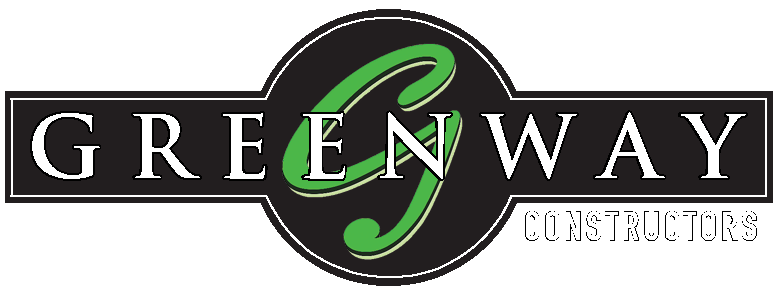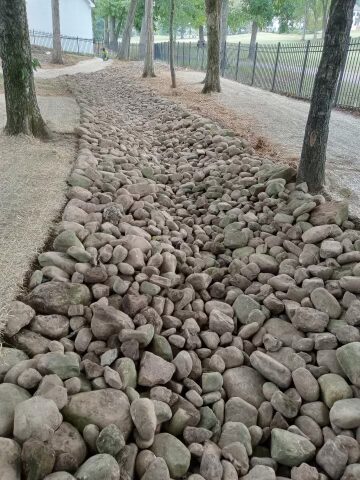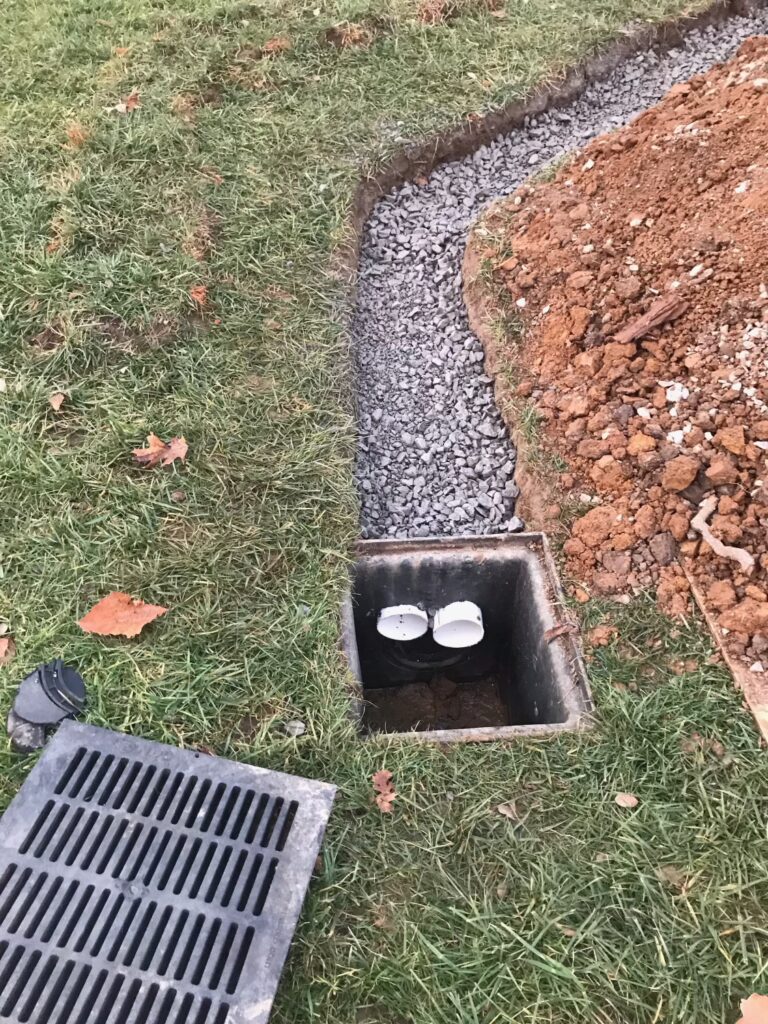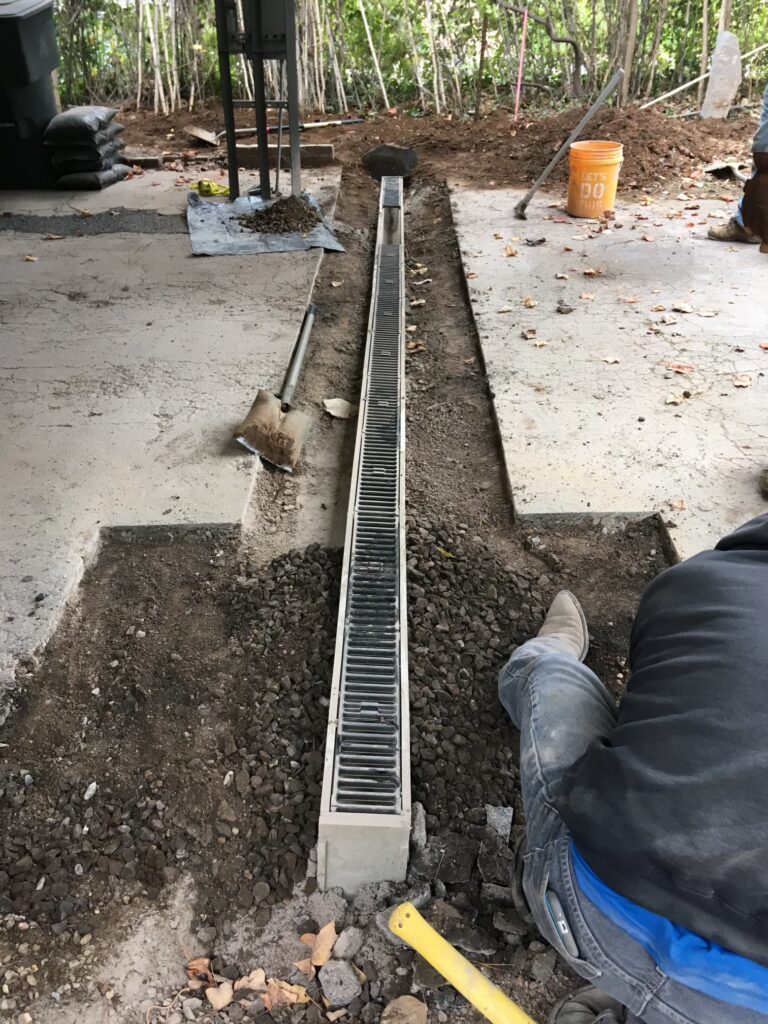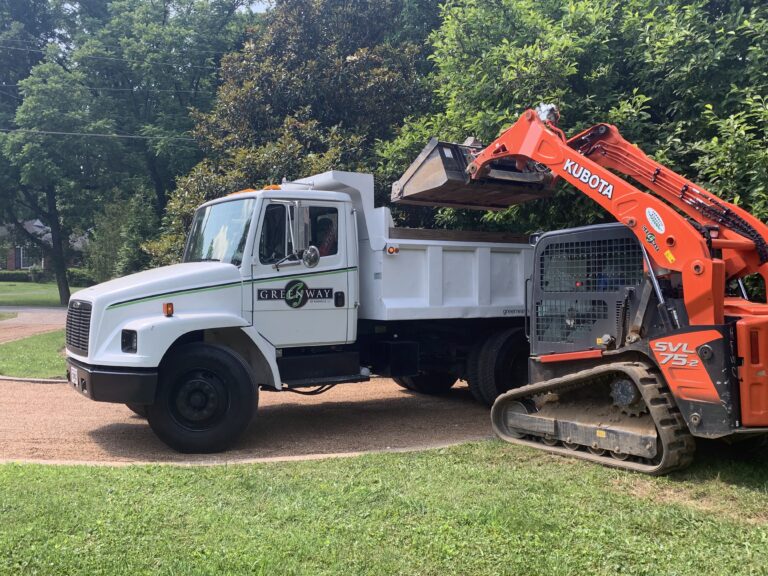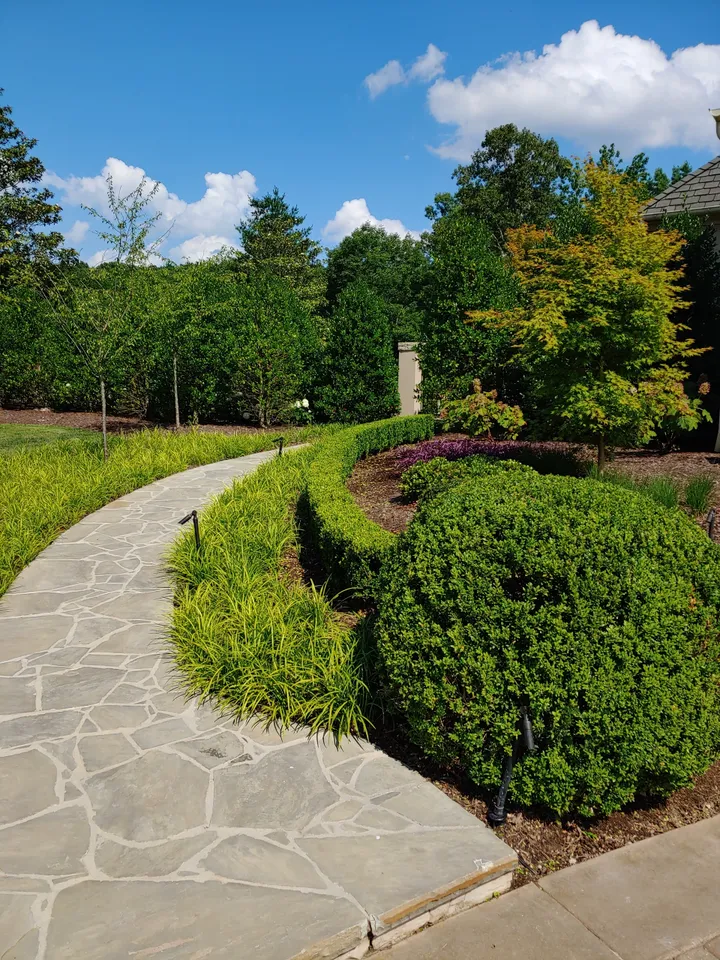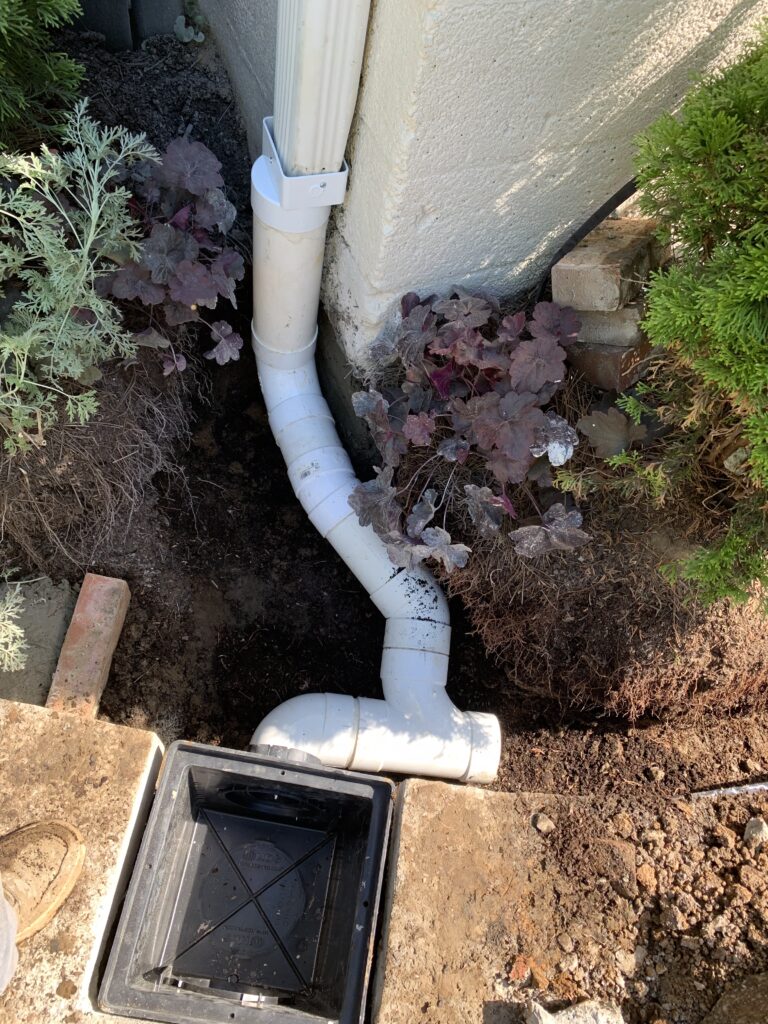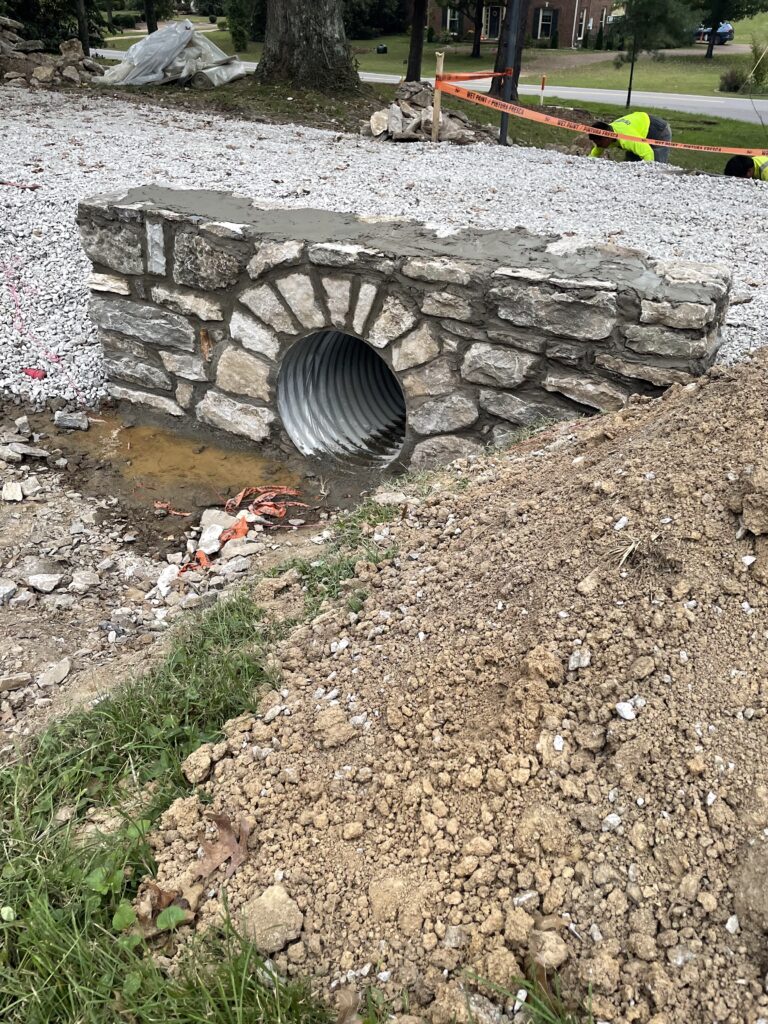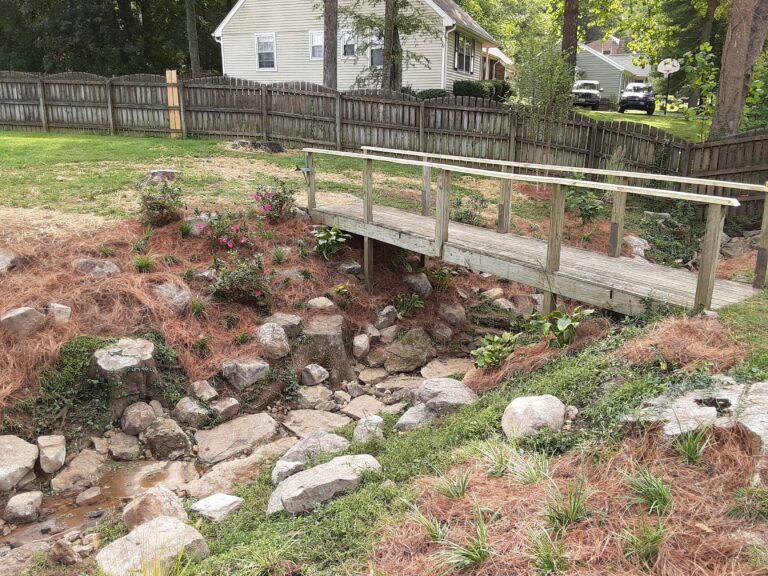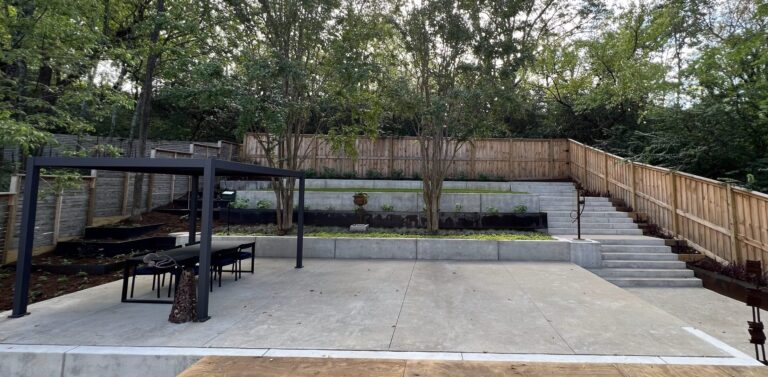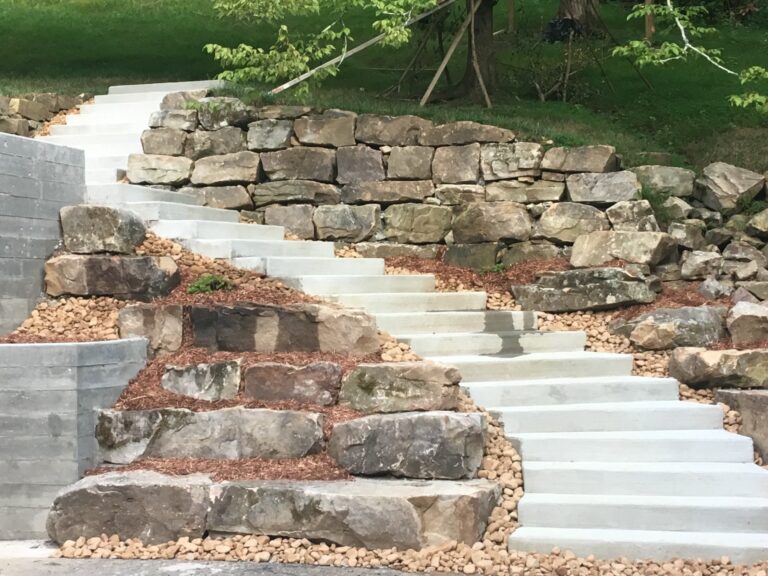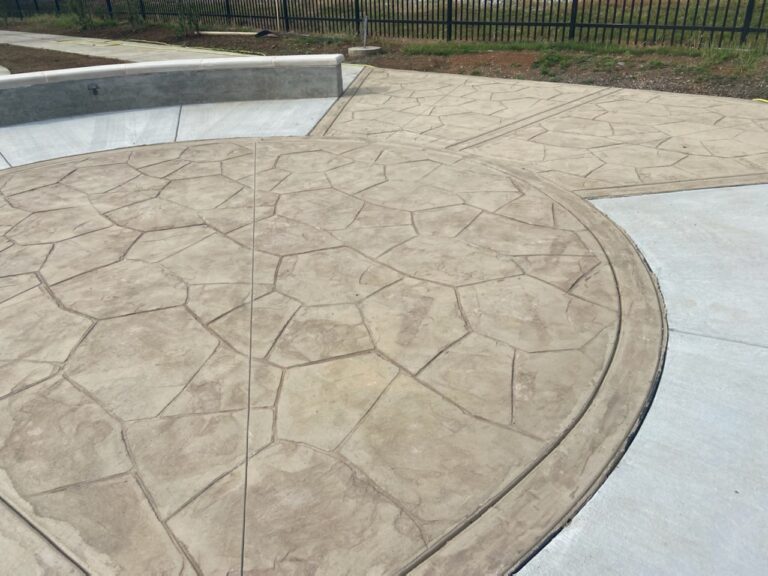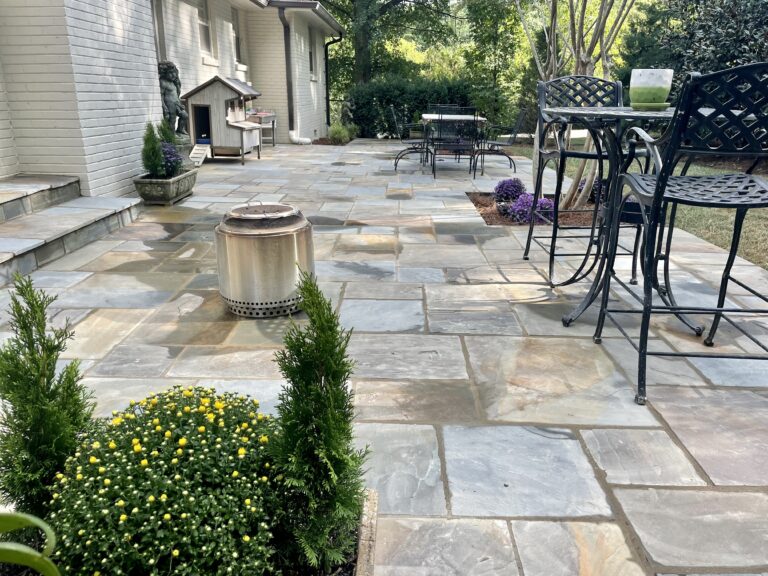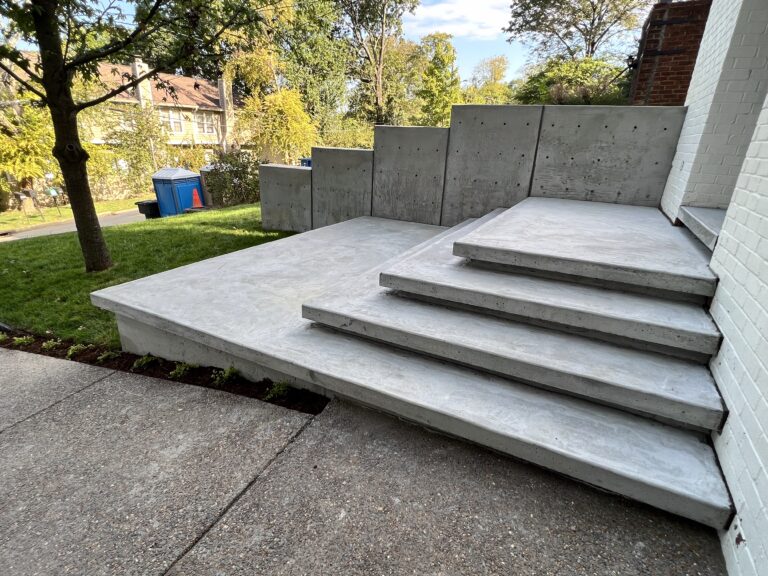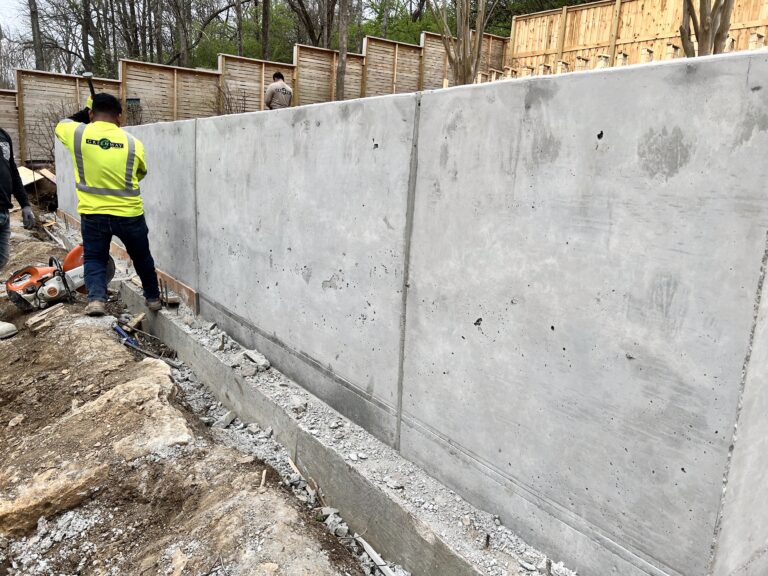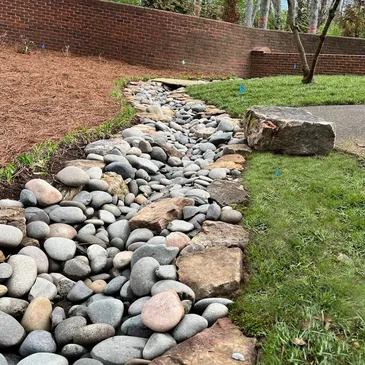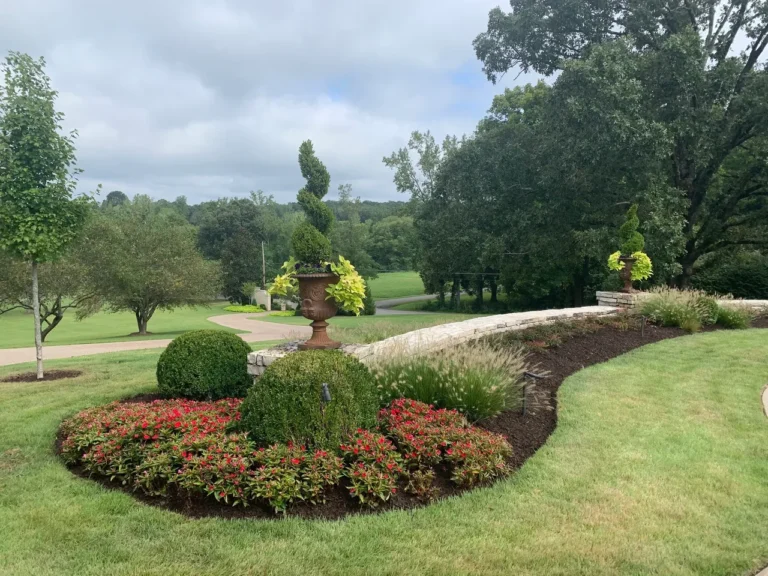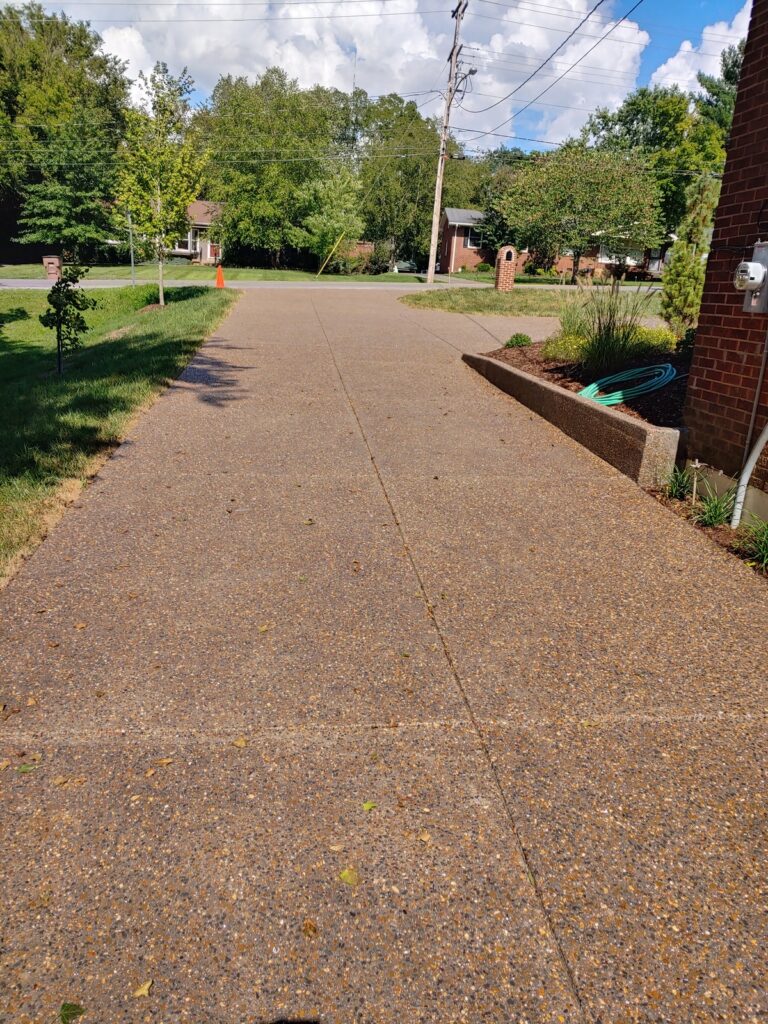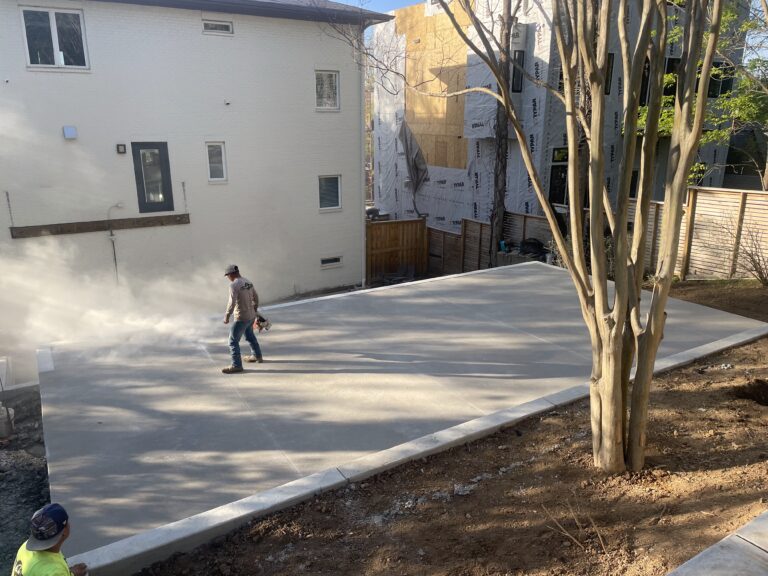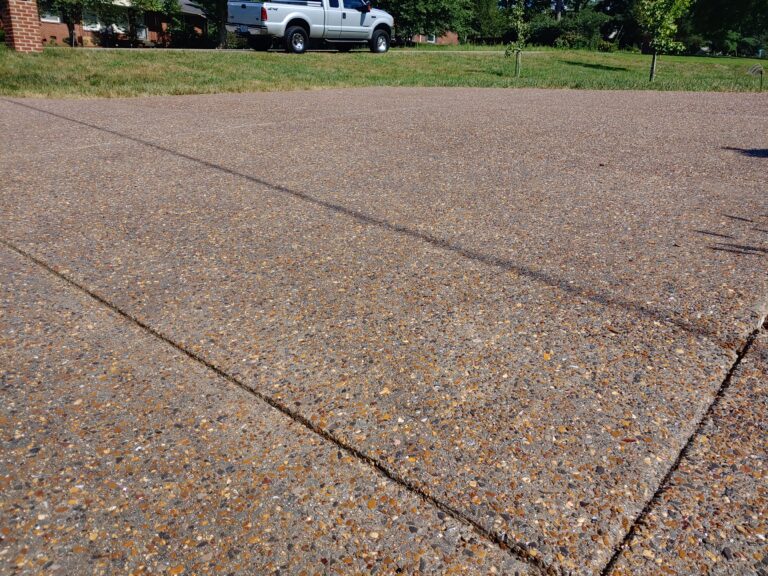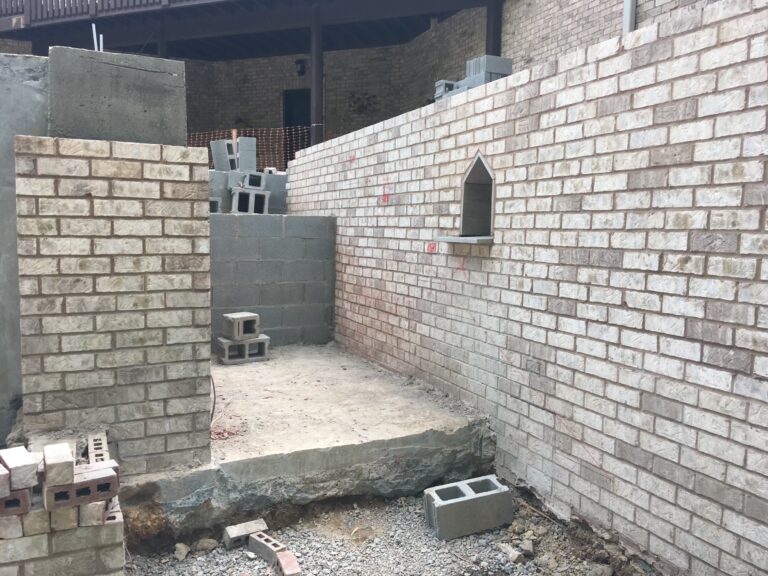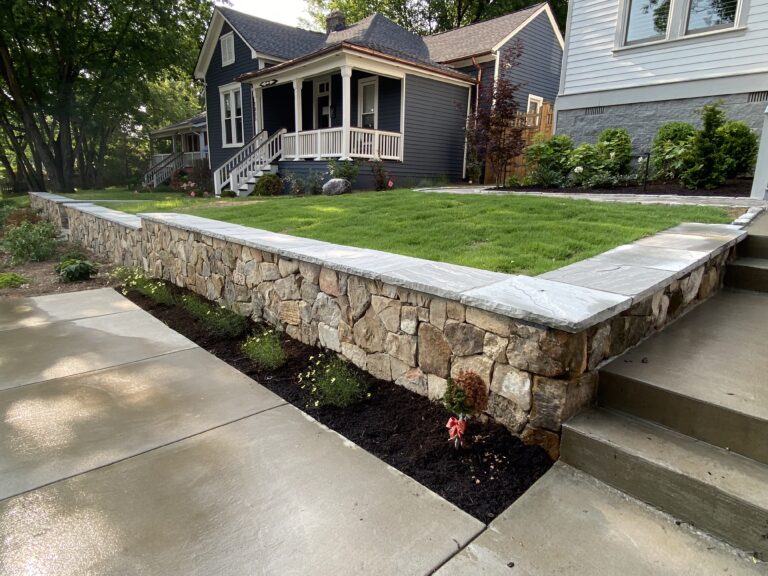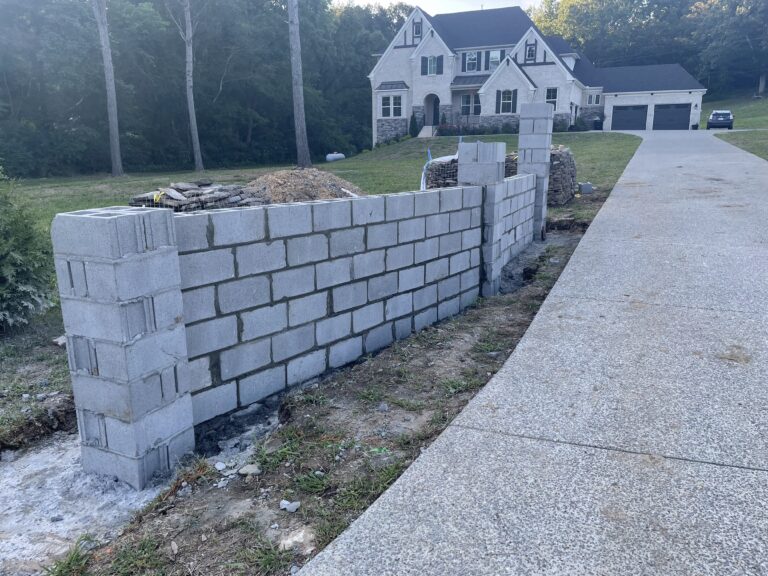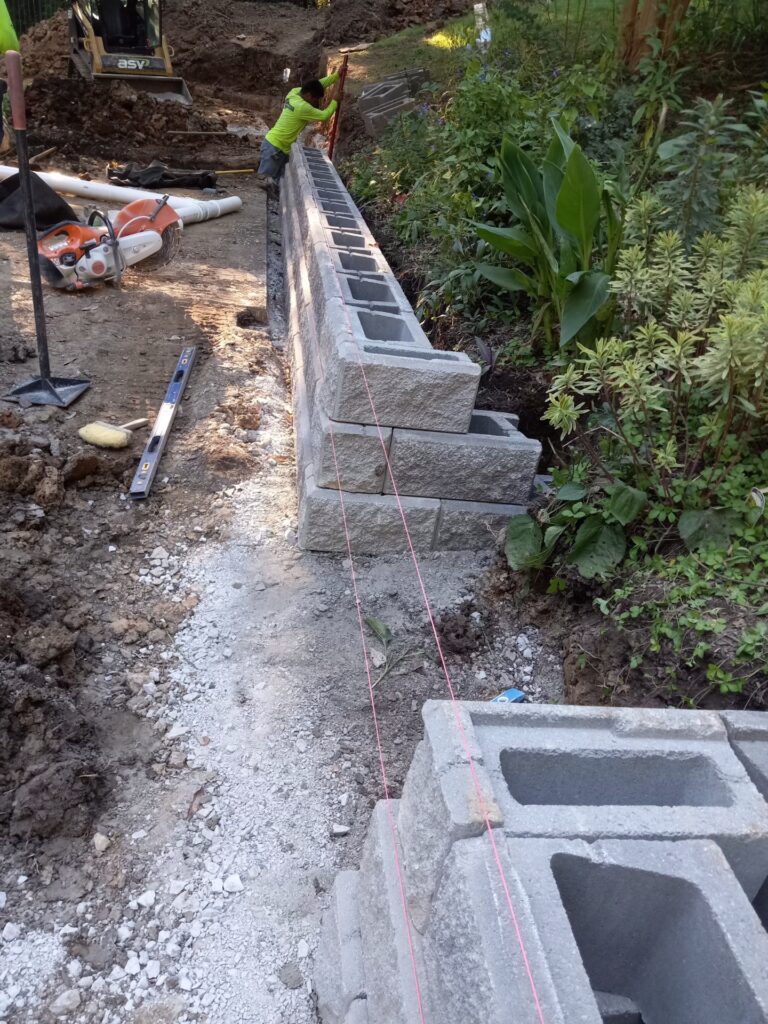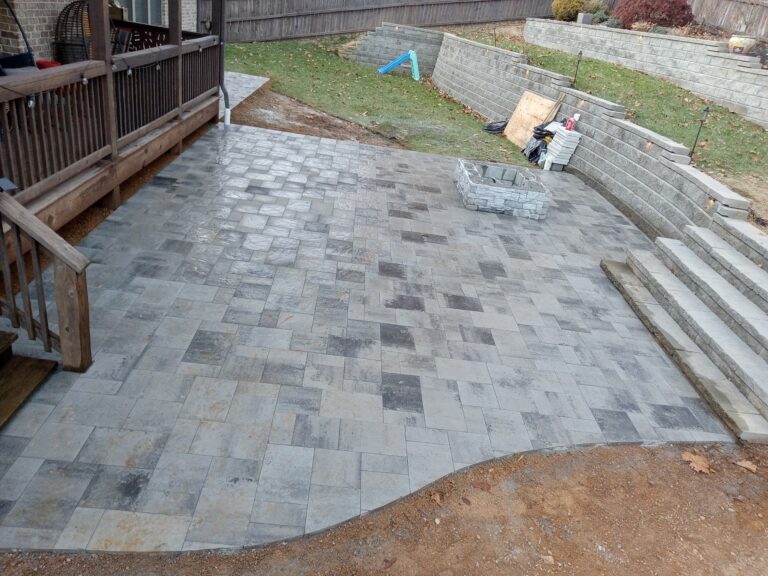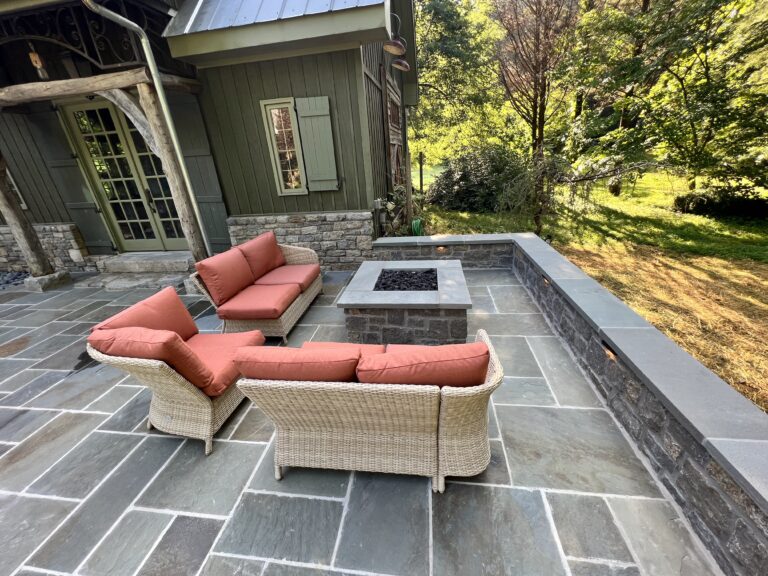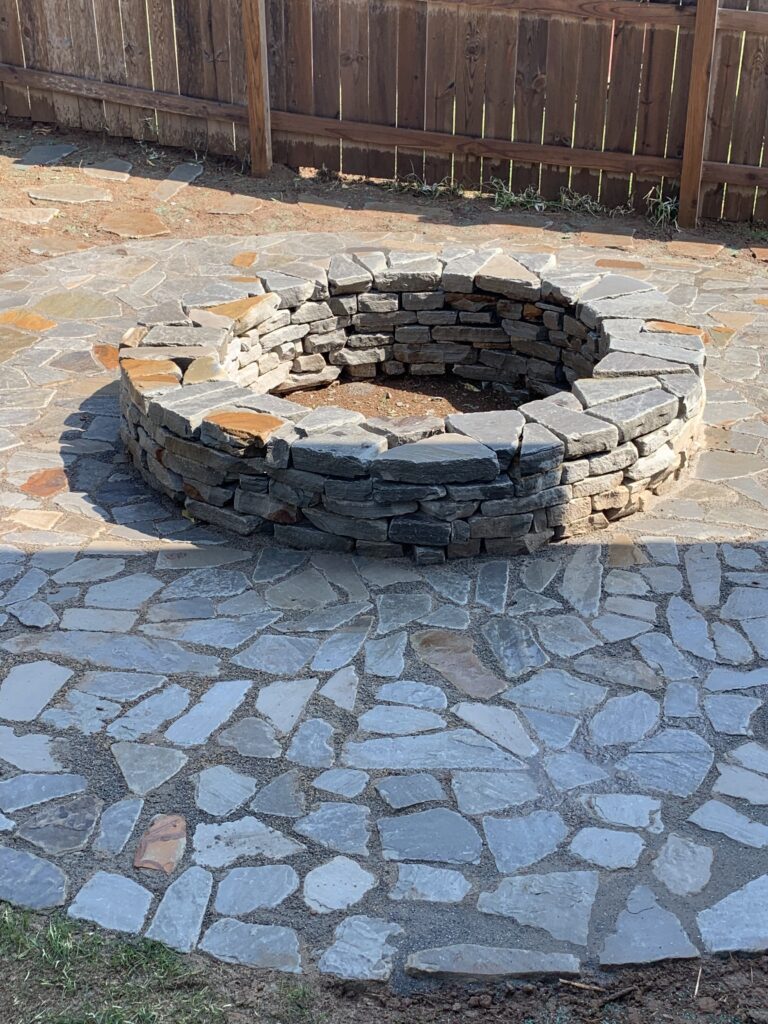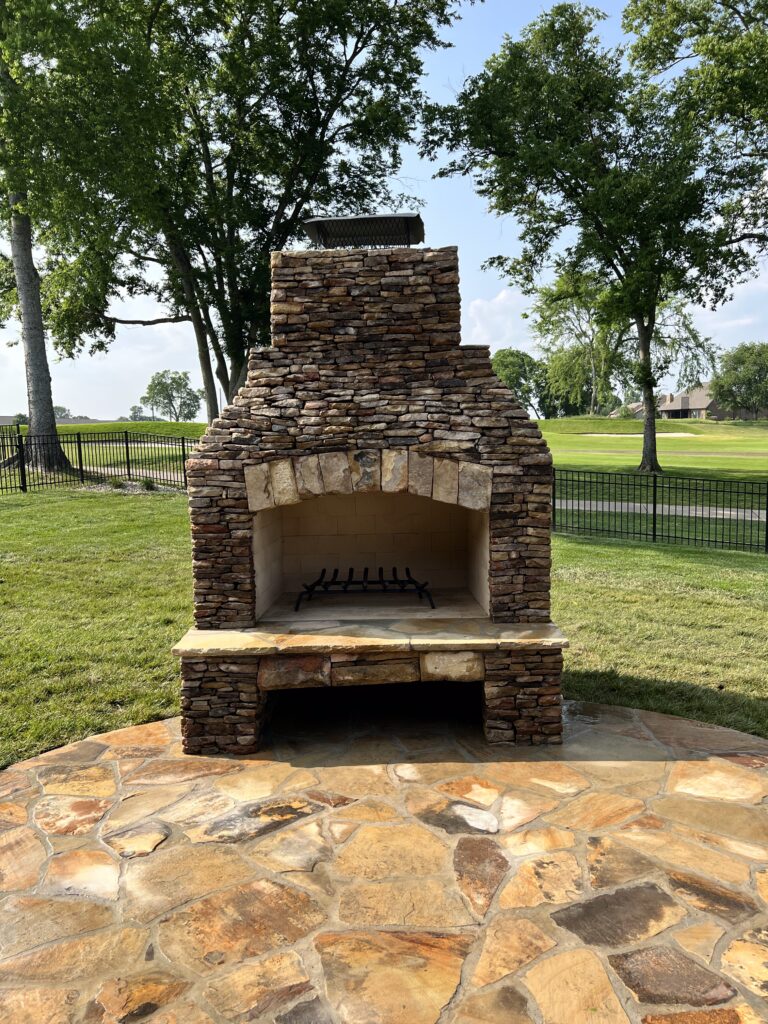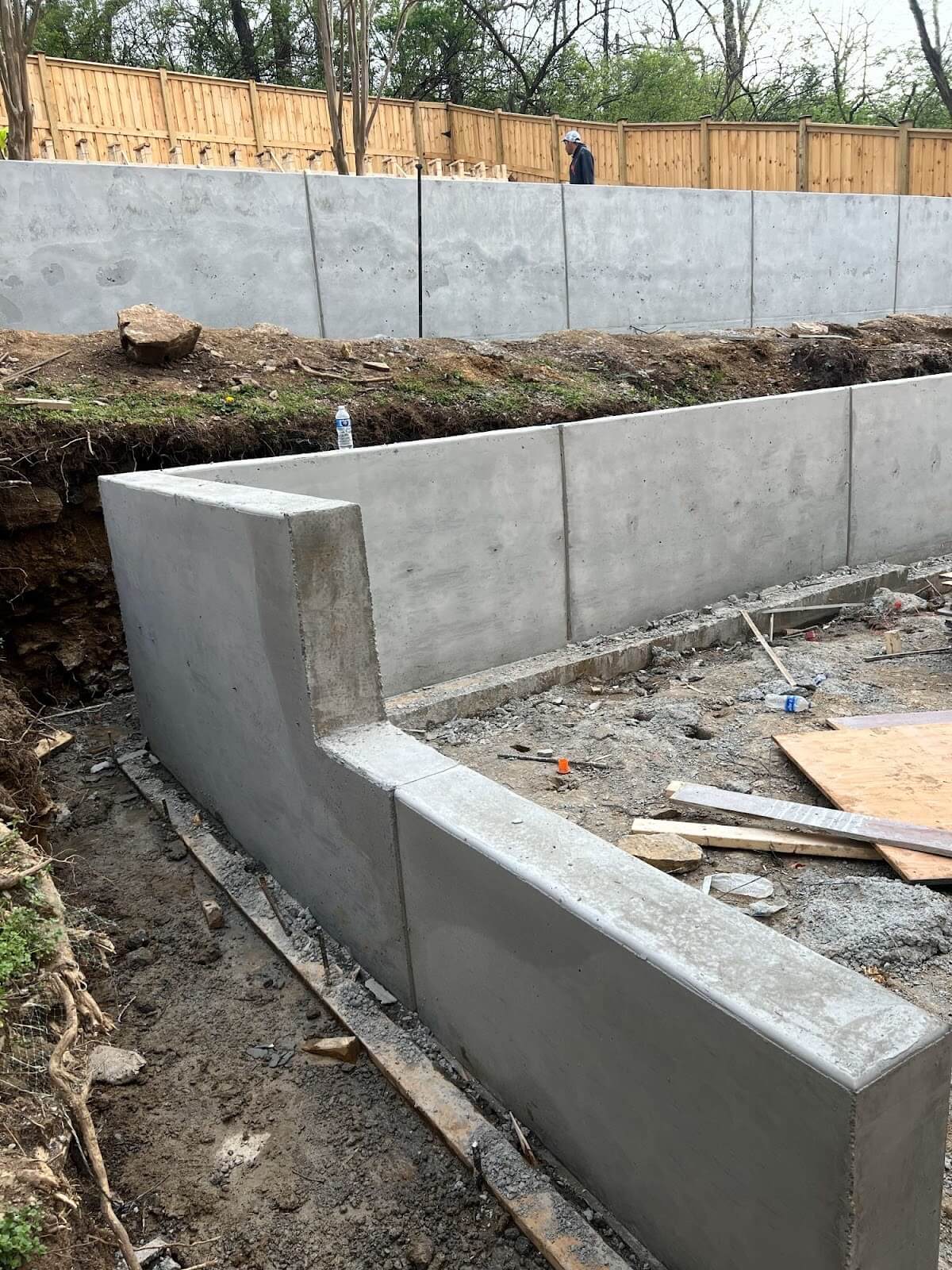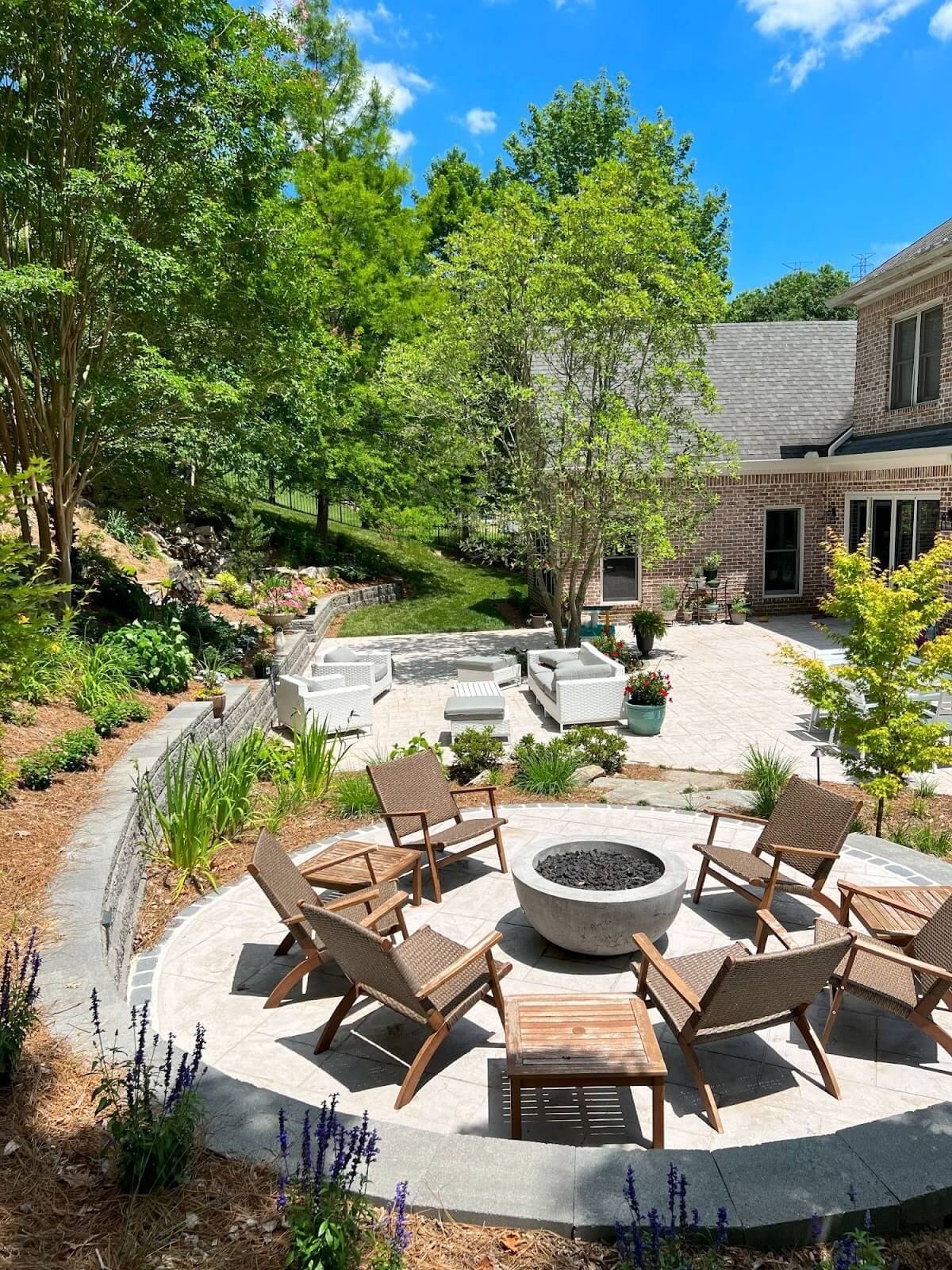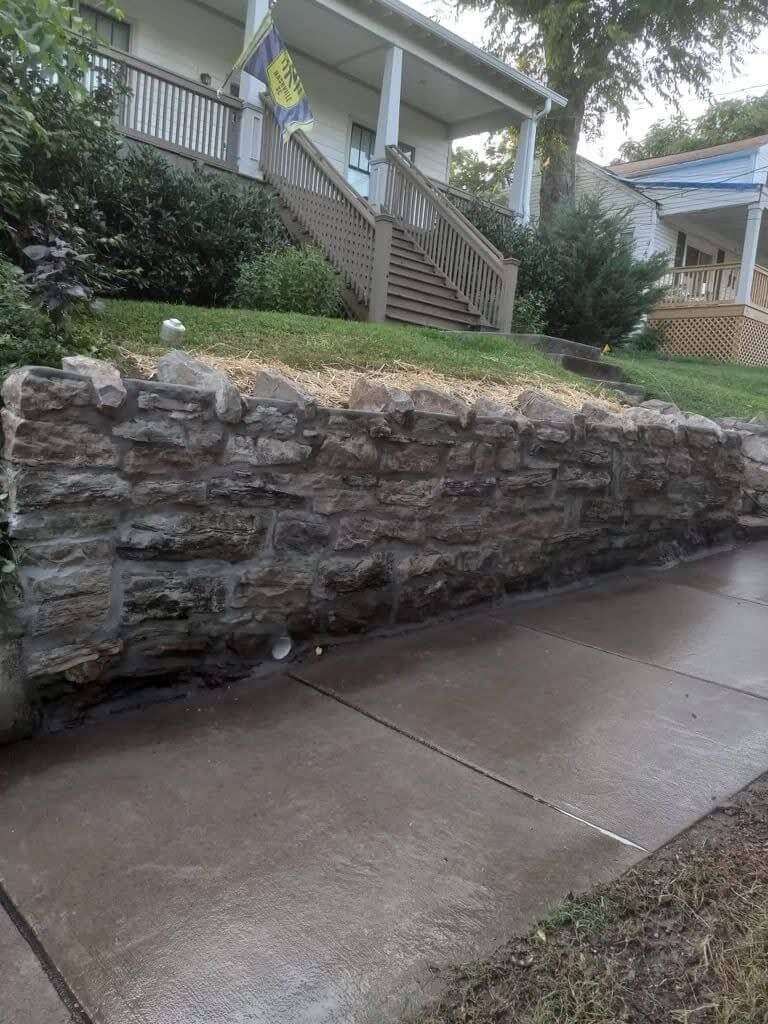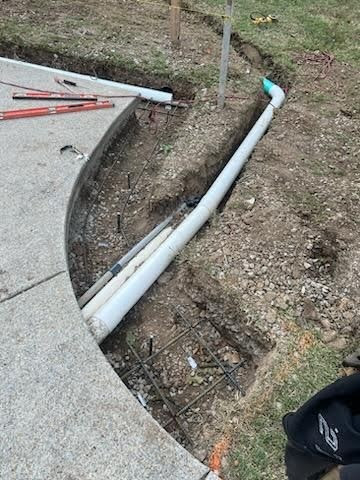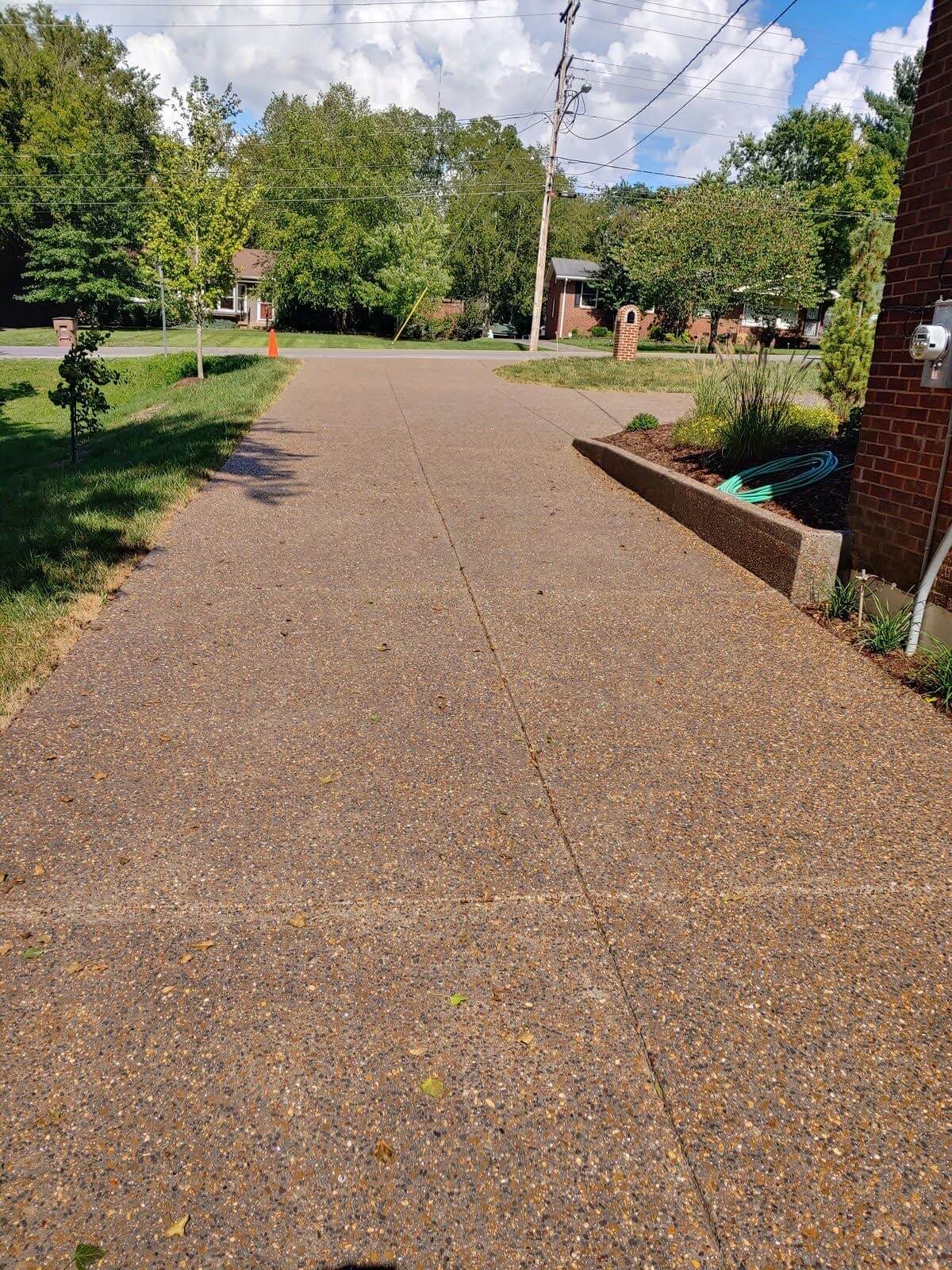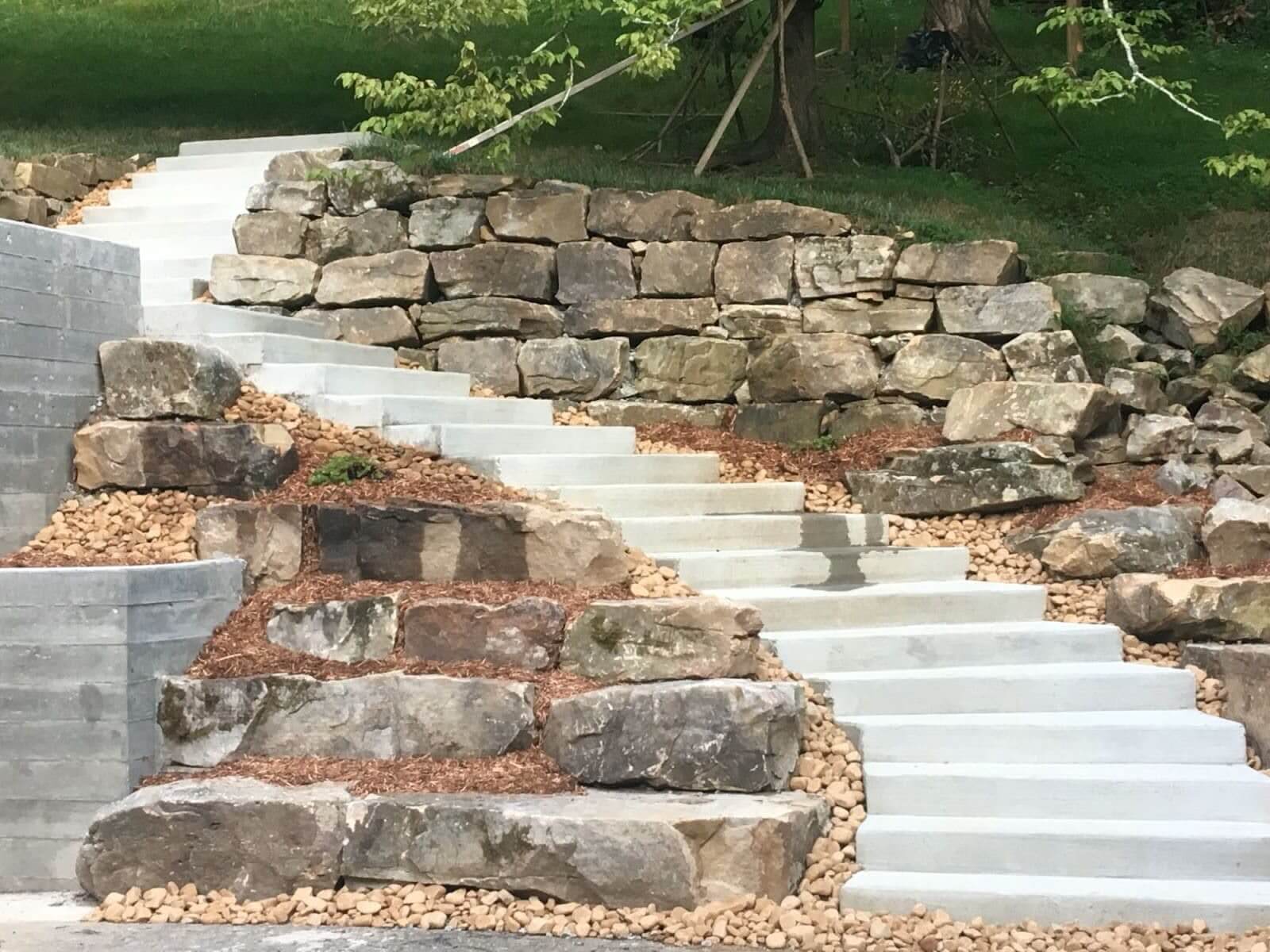When planning a hardscaping project for your property, understanding your building material options is key. When adding a retaining wall to your land, there are a variety of materials you can choose from. Two of the most common types of walls used in residential and commercial construction are concrete walls and CMU walls. Both serve essential purposes, but they differ in materials, construction techniques, and performance.
You may wonder what a CMU wall is and how it compares to a traditional concrete wall. We’ll explore the differences between CMU vs. concrete, weigh the pros and cons of each, and help you determine the right solution for your project. At Greenway, our skilled Nashville masonry experts specialize in both concrete and CMU wall construction, providing you with expert guidance and craftsmanship that lasts.
What Is a Concrete Retaining Wall?
A concrete wall is made by pouring liquid concrete into molds or forms, usually reinforced with steel rebar or mesh. These walls are monolithic, meaning they are one continuous structure once the concrete cures. They are used for retaining walls in both residential and commercial settings. Concrete walls are poured in place, so there are no individual bricks or pieces that are laid. The reinforcement with steel rebar provides additional resiliency by improving tensile strength to reduce the risk of cracking. Walls made of poured concrete are dense and heavy with great durability.
Advantages of Concrete Walls
- Strength and Durability: Concrete walls are incredibly strong and can withstand substantial weight, making them ideal for retaining walls, basements, and other structural applications.
- Seamless Finish: When done correctly, concrete walls have a smooth, continuous finish, giving them a clean and modern look.
- Long Lifespan: Concrete walls can last decades with minimal maintenance if installed properly.
Drawbacks of Concrete Walls
- Cost: Pouring concrete requires forms, equipment, and labor, making it more expensive than other options most of the time.
- Installation Time: Concrete needs time to cure, so the installation process can take longer. Weather can impact the curing, meaning it can take longer than anticipated if the forecast changes.
- Difficult to Adjust: It can be challenging to modify the structure once it has been poured. Unlike block-type materials that can be replaced or shifted, poured concrete has less flexibility.
What Is a CMU Wall?
CMU stands for concrete masonry unit, commonly referred to as a concrete block or cinder block. CMU walls are built using these precast rectangular blocks, which are stacked and held together with mortar. They can be reinforced with rebar, and concrete fill can be added for strength. CMU walls are popular for both load-bearing and decorative walls.
Advantages of CMU Walls
- Cost-Effective: CMU walls are often more affordable due to the lower material and labor costs.
- Design Flexibility: CMUs can be used to create curved walls, decorative patterns, and textured finishes.
- Ease of Installation: Because CMUs are modular, they’re easier to handle and install, particularly in areas with limited access.
- Fire- and Pest-Resistant: CMU walls are non-combustible and provide good protection against termites and other pests.
Drawbacks of CMU Walls
- Less Dense Than Poured Concrete: CMUs are hollow until reinforced and filled, which can make them weaker than solid concrete until properly installed.
- Mortar Maintenance: Over time, mortar joints can crack or deteriorate and may require repointing.
- Waterproofing Required: CMU walls are more porous than poured concrete, so waterproofing is essential to prevent leaks.
CMU vs. Concrete: Key Differences
Each type of wall has key differences that should help you decide the right option for your use.
- Construction Method: Concrete walls are poured in place while CMU walls are built by stacking individual blocks.
- Strength: Concrete has high structural strength, while CMU is moderately strong. CMU strength can be improved with additional reinforcement.
- Cost: Concrete is typically more expensive, while CMU is more budget-friendly.
- Installation Time: Concrete takes longer due to curing. CMU is usually faster to install, especially if you’re skilled in the trade.
- Customization of Shape: Concrete is limited, especially once poured. It will be confined to the shape of your mold. CMU, however, is more flexible, as you can adjust the blocks throughout the building process to modify as needed.
- Waterproofing: CMU blocks will need to be sealed to add protection against water damage.
Is CMU the Same as Concrete?
This is a common question. CMU is made of concrete, but it is precast into individual blocks. In contrast, poured concrete walls are created by filling forms with wet concrete on site. While both share the same base material, their structural capabilities and construction processes are distinct.
What Type of Wall Is Right for Your Nashville Property?
Choosing between CMU and concrete depends on your project’s specific needs, budget, and aesthetic preferences. Here’s a quick guide:
- Choose Concrete If: You need a high-load retaining wall where durability and strength are top priorities. It’s also ideal if you’re looking for that smooth finish with clean and modern lines.
- Choose CMU If: You’re working within a tighter budget and want more design flexibility. It’s great for a more decorative or non-load-bearing wall.
Work With Greenway for Your Concrete or CMU Wall
Whether you’re building a retaining wall, garden enclosure, or any other hardscaping feature, professional installation is key to getting the best results. Finding a professional hardscaping contractor like Greenway provides comprehensive planning and installation with skills backed by nearly two decades of experience.
At Greenway, we specialize in concrete retaining walls and CMU wall installations throughout the Nashville area. Our experienced craftsmen help you select the right materials and construction methods for your home. Nashville homeowners trust Greenway for our expertise in all kinds of retaining walls. We don’t just specialize in one method; we understand each and will guide you to the best fit. No two yards are the same, so a one-size-fits-all approach to your landscape will lead to failure.
Poor construction can lead to drainage problems, instability, and premature deterioration. We eliminate these issues by evaluating existing grading, drainage, and soil conditions to ensure your wall is built to last. Our team knows local building codes inside and out, so your wall is safe and compliant with your county’s regulations.
If you’re considering a concrete retaining wall, a CMU wall, or are not sure which is right for your Nashville property, reach out to the experts at Greenway. Our team is here to walk you through every step and build something you can count on for decades.
Prevent erosion and landscape damage by scheduling your consultation with Greenway and taking the first step toward a stronger, more beautiful outdoor space.
